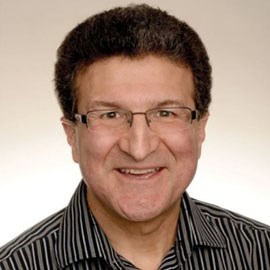One of the great joys of being human is that we do not know everything, we are always learning. On our journey through life, we often find that we are wrong and that we have a great deal to learn from our brothers and sisters.
The problem is that we do not like to be told that we are wrong. This normally brings a defensive reaction in us and we become argumentative. If we want to sour encounters with others, contradict them. We may indeed be right in our position, but we stand the risk of permanently damaging the relationship.
Interestingly, children are normally more receptive to being told that they are wrong than adults, but if teachers want to create a positive learning environment with their students, it is vital that we learn to disagree respectfully and keep an open spirit to what young people are saying.
What is interesting is that when we are open to the opinions of others, we normally find that we create a better ways to get things done. One of the greatest thrills in teaching mathematics is when a student finds a way to solve a problem that I had never thought of. I say, "Show me how you got that answer." When the student explains, I exclaim, "You are brilliant! I would never have thought of solving it that way! I love the way you think!"
What I have done is what Sean Covey calls "making a deposit in the Relationship Bank Account." The students feel like they are on top of the world, that they are brilliant. That is wonderful, because they really are brilliant. In addition, the students have seen the human side of me as a teacher, that I am not always right and that I know that I do not have to be. They see me as a person they can trust, and trust is vital if real learning is going to take place.
This is not only true for teachers, it is true in our families and in every walk of life. If we can avoid being argumentative we become disarming. I recall having gone the wrong way on a one-way street soon after my arrival in Africa. Never mind that the street was not marked. An angry police officer stepped into my car and sternly told me what I had done and that I risked having my vehicle impounded. I simply replied that he was right, and that as a foreigner I needed to accept the laws in his country. He was shocked and repeated his threat to me. I remained calm in my response. In the end, my vehicle was not impounded and the police officer and I parted ways on good terms.
In the end, it is not about being right, it is about being on good terms with other people. If we can listen to other people and respect their perspectives, they will be much more likely to listen to our point of view. In addition, when we take the attitude that we do not know everything and can learn a great deal from others, we can find better ways to get things done.
In order to do this effectively we need to be very sure of ourselves. We need to be able to let go of our worldview and see things from another's perspective. We need to be so confident in our own mathematical abilities, for example, that we do not to feel threatened when a child questions the way that we process numbers.
When we can honestly celebrate ourselves with all of our strengths and weaknesses, we can celebrate others. We can find new perspectives and better ways of getting things done. Life then becomes the joyful adventure it was intended to be.



